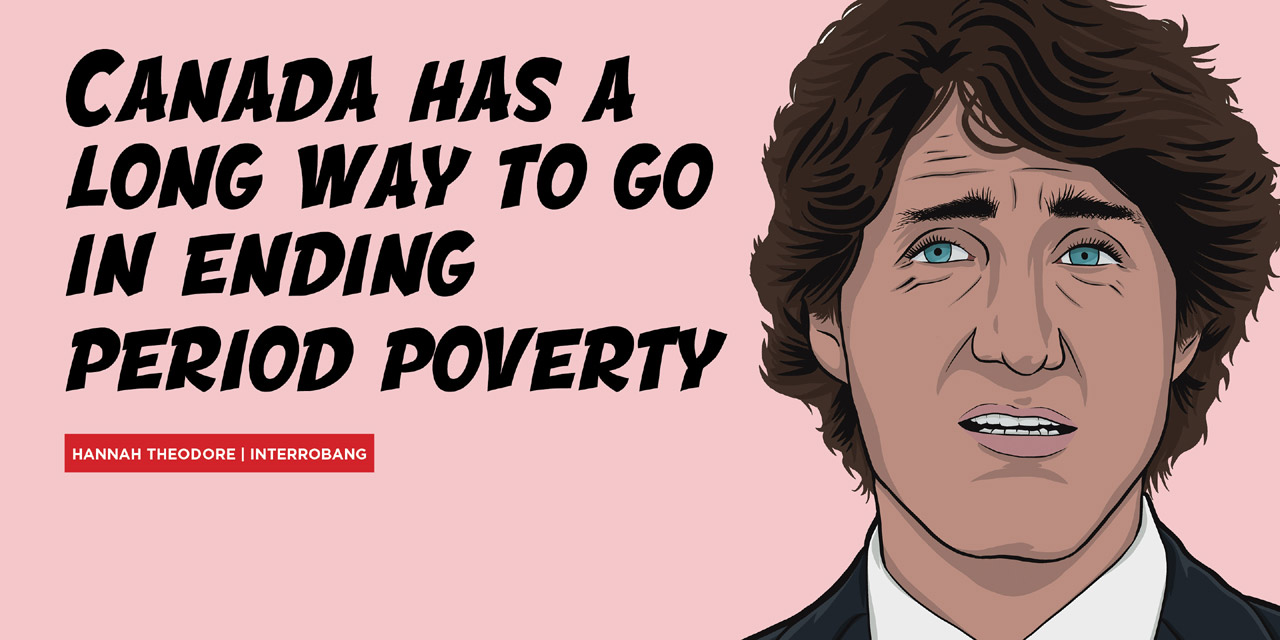Canada has a long way to go in ending period poverty

Until 2015, Canadians who menstruated were paying GST on menstrual products like pads and tampons. These necessary tools for managing periods were deemed non-essential, a luxury, by the Canadian government.
According to Canadian Menstruators, in 2014, the government collected approximately $36,398,387.00 in government sales taxes from menstrual hygiene products.
Thanks to a petition signed by thousands, this tax was ended, and menstrual products were finally considered essential items. They joined the ranks of things like cocktail cherries, incontinence products and wedding cakes as items there were no longer subject to the luxury tax.
But now it’s time to take things a step further: it’s time that these essential products were made free across Canada. This is not a wild idea, either. In 2017, Scotland launched a pilot project making menstrual products free in schools and food banks following a £42,500 investment from the Scottish government. About 1,000 girls benefited from the project, and Scotland’s Labour Party has since vowed to make the plan permanent.
In Canada, there have been talks since the luxury tax was ended to make menstrual products available in federal workplaces. Petition e-2636 is currently calling on the Federal government to “to provide free menstrual products (tampons and pads) in washrooms at all federally regulated workplaces and address menstrual equity at the national level by recommencing its work on this proposal.”
The petition has over 3,000 signatures and has been endorsed by London North Centre Liberal MP, Peter Fragiskatos.
The main driving force behind the petition is that no one should be forced to leave school or work because they got their period unexpectedly. It creates an equity issue in these spaces whereby a naturally occurring process hinders a group of people from contributing to the workspace.
The decision to offer free menstrual products in Scotland was ignited by the growing issue of “period poverty,” where girls had reported using things like t-shirts, toilet paper, and even newspapers to manage their periods. No one should be forced to resort to these measures.
There’s an economic benefit to this as well. If menstruators are able to manage their periods comfortably at work, they’re likely to be more productive, happier, and trusting of their work environment.
Several items are covered under our government funded health plans, yet menstrual products continue to be something that people pay out of pocket for. To put things in perspective, a box of tampons costs about $8. That means Canadians who menstruate are spending almost $100 a year on tampons, let alone other menstrual products like pads and panty liners. That’s $100 that could go towards contributing to the local economy, or saving to buy property. If the government fully subsidized menstrual products, this would put more money in the pockets of women, girls, and gender non-forming folks who are often disproportionately affected by poverty.
For some groups, access to menstrual products is even more difficult. While the government’s proposed plan to make products available in the workplace would impact a large portion of the population who work in federally regulated workplaces, it does nothing to help homeless women, Indigenous women, or sex workers.
This is why we must look ahead to even bigger solutions. Solutions that would make menstrual products readily available for all those who need them, for free. Groups like the Period Purse are working to make products readily available for marginalized groups. They receive donations with bags full of period products to be distributed to homeless people in need around Canada.
Periods are an inevitable part of life for over 50 per cent of Canadians. It’s time that the products we need to manage this monthly occurrence were readily available for all.
Editorial opinions or comments expressed in this online edition of Interrobang newspaper reflect the views of the writer and are not those of the Interrobang or the Fanshawe Student Union. The Interrobang is published weekly by the Fanshawe Student Union at 1001 Fanshawe College Blvd., P.O. Box 7005, London, Ontario, N5Y 5R6 and distributed through the Fanshawe College community. Letters to the editor are welcome. All letters are subject to editing and should be emailed. All letters must be accompanied by contact information. Letters can also be submitted online by clicking here.
















